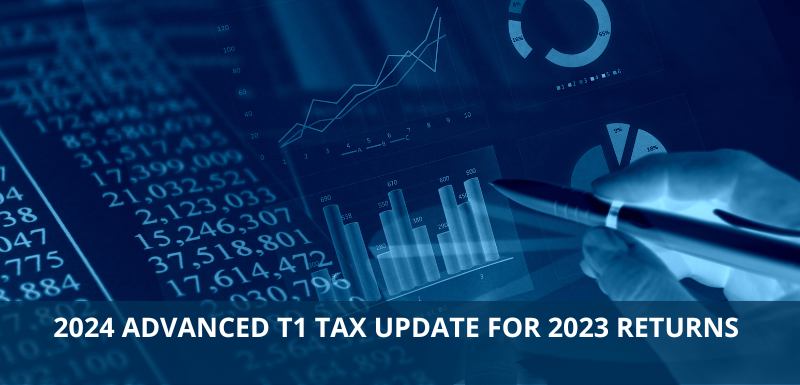Last updated: January 25 2024
Claiming Child Care Expenses? Surprises Await

Childcare expenses are claimed as a deduction on Line 21400 of the tax return and that’s important because these costs reduce family net income, which is the number used to calculate the monthly Canada Child Benefit (CCB). But guess what? If you qualified for the new $10 a day childcare, or you spent less on child care in 2023, an unpleasant surprise may be coming your way.
The Issue: For those taxpayers who net income is around the top of the income-tested ceiling levels, a smaller childcare expense deduction could actually reduce the amount of tax-free Canada Child Benefits available to the family. Know the rules for claiming childcare, the CCB income ceiling levels at which your clawback could start, and then speak to your financial advisor before February 29th if you can make an RRSP contribution to reduce your net income.
The Child Care Expense Rules: The cost of paying a babysitter or nanny for the care of the children while the parent(s) work or attend school is deductible. The deduction is calculated on Form T778 Child Care Expenses Deduction for YEAR and claimed on line 21400.
Eligible Taxpayers. Childcare expenses may be claimed by parent(s) who must pay another individual to care for their children so that they may:
- earn income from employment or self-employment,

- attend school either full-time or part-time, or
- carry on research for which a grant was received.
Eligible Dependants. Expenses are deductible for the care of dependent children who were under the age of 16 (at any time during the year) or who are physically or mentally infirm. An eligible child must be
- a child of the taxpayer, the taxpayer's spouse or the taxpayer's common-law partner's or
- a child who was dependent on the taxpayer, the taxpayer's spouse or common-law partner
Eligible Child Care Providers. Childcare must be for services provided in Canada by:
- a day nursery school or day-care centre,
- a day camp or day sports school,
- a boarding school or camp (including a sports school where lodging is involved),
- an educational institution for the purpose of providing childcare services, or
- an individual who is not the child's father or mother, a supporting person of the child, a person in respect of whom the taxpayer or a supporting person of the child has claimed a personal amount or a person who is under 18 years of age and related to the taxpayer.
Cross Border Workers. There is an exception for commuters who live near the Canada-U.S. border where the childcare expenses were provided at a location that is closer to the taxpayer's place of residence than any place in Canada where such child care services are available.
Eligible Expenditures. The following are expenses that may be claimed:
- baby-sitting costs,
- day care costs,
- costs of a live-in nanny; which may include advertising, salary and benefits including the employer's portion of CPP and EI,
- lodging paid at boarding schools, day camps, overnight sports school and overnight camps to a maximum of:
- $125 per week for each child age seven to 16 for which the Disability Amount cannot be claimed ($100 before 2015), plus
- $200 per week per child under seven for which the disability amount cannot be claimed ($175 before 2015), plus
- $275 per week for each disabled child ($250 before 2015)
Receipts for Expenses. Receipts for childcare expenses do not have to be filed with the return but should be maintained for inspection by CRA. Receipts for amounts paid to individuals must include the caregiver's social insurance number unless they are paid to individuals who are not Canadian residents.
Ineligible Expenditures. The following expenses may not be claimed:
- medical or hospital care,
- clothing,
- transportation,
- tuition fees,
- board and lodging expenses except when they are included in the total charges for a boarding school, day camp or overnight sports school and do not exceed the weekly limits,
- expenses that were not actually paid or which were or will be reimbursed.
Make a Big Difference. Talk to your clients, family members and associates who have small children and are claiming childcare expenses, especially if they paid less in 2023 than in prior years. An RRSP can be the ticket to preserving precious monthly Canada Child Benefit resources when a child care expense deduction wanes.
child includes an adopted child or the spouse of a child of the taxpayer
in this case, the child's net income must be less than the Basic Personal Amount
For a deemed or factual resident of Canada who is not physically present in Canada at the time the child care was provided, the requirement is waived that the services be provided in Canada.
